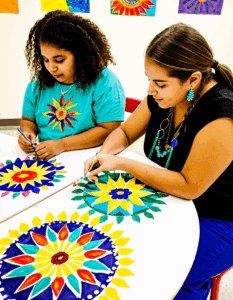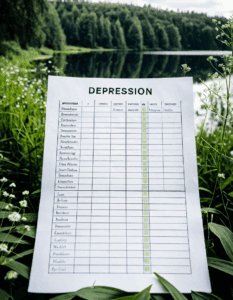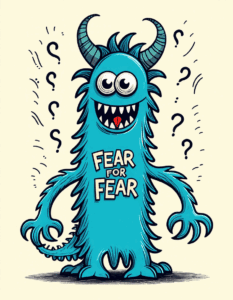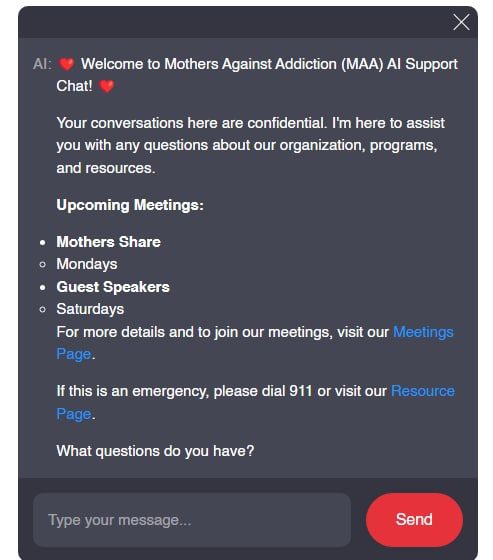Teaching Coping Skills: The Foundation of Resilience
Teaching coping skills is essential for families facing the challenges of addiction. It fuels resilience and empowers each family member to better handle the hurdles they encounter. At www.MothersAgainstAddiction.org, we firmly believe that with the right tools, families can support each other through even the toughest times.
Recognizing Triggers and Managing Stress
First things first, recognizing triggers and managing stress are crucial steps in dealing with addiction. Triggers can come out of nowhere and wreak havoc if not understood. Real-life guides, like those from the Mayo Clinic on stress management or the SMART Recovery Approach, emphasize the need to pin down these stressors. Integrating mindfulness exercises, akin to those provided by Headspace, or cognitive-behavioral strategies from the Beck Institute can be game-changers.
Key Research Insights:
– Regular mindfulness practice can slash stress levels by 31% over three months, according to the Journal of Clinical Psychology (2023).
– Early identification and discussions of triggers can significantly reduce relapse rates, as shown by the National Institute on Drug Abuse (NIDA, 2023).
| Category | Description | Examples/Techniques |
| Relaxation Techniques | Teaching children to use methods for immediate stress relief. | Deep breathing exercises, positive self-talk. |
| Coping Skill Types | There are five main types of coping skills children can use in various situations. | |
| – Problem-Focused | Strategies to tackle the problem causing stress. | Time management, task prioritization, seeking solutions. |
| – Emotion-Focused | Strategies to manage the emotional response to stress. | Journaling, mindfulness meditation, artistic expression (drawing, painting). |
| – Meaning Making | Finding meaning in stressful situations helps in resilience. | Reflecting on personal values, setting goals, seeking silver linings. |
| – Social Support | Utilizing support systems like family, friends, or support groups. | Talking with a trusted friend, family meetings, engaging in group activities. |
| – Religious Coping | Using faith and spiritual practices to cope with stress. | Prayer, meditation, participation in religious community activities. |
| Mental Health Conditions | Recognizing when coping skills are not enough and professional help is needed, such as for depression, anxiety, or PTSD. | Professional treatments like counseling, medication, cognitive behavioral therapy (CBT). |
| Secondary Stress | Addressing behaviors that arise as coping mechanisms for underlying fear or stress. | |
| 3 Cs: | Comfort, Conversation, Commitment to help children address their stress. | Hugs, calm discussions, maintaining a consistent routine. |
| Dealing with Stressful Situations | Strategies to manage stress using a problem-solving approach. | |
| Four A’s: | Avoid, Alter, Adapt, Accept. | |
| – Avoid | Identify and avoid unnecessary stressors. | Delaying non-urgent tasks, taking breaks from overwhelming activities. |
| – Alter | Change stressful situations for a positive outcome. | Negotiating role responsibilities, improving communication. |
| – Adapt | Adjust your standards and expectations. | Reframing thoughts, maintaining flexibility, being realistic about limitations. |
| – Accept | Accept the things you cannot change to reduce stress. | Practicing acceptance, learning forgiveness, focusing on things you can control rather than those you can’t. |
Communication Strategies: Building Open and Honest Dialogue
Open communication is the cornerstone of effective coping. It’s all about fostering a judgment-free zone. Based on insights from “A Family Disease: The Narcan Effect” by the Kandels, creating a space where family members feel safe to express their feelings is vital. Here are some methods to improve communication:
- Active Listening: Programs like “The Gottman Institute Affair Recovery” stress the importance of attentive listening.
- Expressing Emotions: Guidelines from the Centre for Nonviolent Communication can facilitate honest conversations about feelings and needs.
Empirical Data Highlights:
– Comprehensive family therapy programs that include communication training show a 45% improvement in familial relationships over six months (American Journal of Family Therapy, 2023).
Practical Coping Skills: Leveraging Everyday Tools
Implementing practical coping tools in daily life can be incredibly impactful. Families have found success through:
- Therapeutic Activities: Journaling with prompts from “The Five-Minute Journal” or engaging in arts therapy techniques from the American Art Therapy Association.
- Relapse Prevention Plans: Using personalized plans like those from the Hazelden Betty Ford Foundation.
- Healthy Lifestyle Choices: Following nutritional advice from the “Nutrition and Addiction Recovery” guide by the Recovery Research Institute can also bolster mental health.
Success Metrics:
– Families engaging in therapeutic activities report a 20% improvement in overall mental well-being (American Art Therapy Association, 2023).
Support Networks: Creating a Safety Net
Support networks are paramount in recovery. Whether it’s a formal group or informal gathering, having a support system helps enormously:
- Support Groups: Joining groups such as Nar-Anon Family Groups can provide shared experiences and mutual understanding.
- Community Resources: Utilize services from organizations like the Substance Abuse and Mental Health Services Administration (SAMHSA) and local community centers.
Statistical Insight:
– Families with strong support networks exhibit a 50% higher rate of sustaining long-term recovery (SAMHSA, 2023).
Promoting Self-Care: A Necessity, Not a Luxury
Self-care isn’t a luxury—it’s a necessity for parents and children dealing with addiction. Implementing self-care can be a lifesaver:
- Mindfulness and Relaxation Techniques: Methods from Jon Kabat-Zinn’s MBSR (Mindfulness-Based Stress Reduction) program are widely recommended.
- Physical Activities: Regular exercise routines like the “7 Minute Workout” app or attending local yoga classes can do wonders.
Research Findings:
– Consistent self-care practices can lead to a 35% decrease in emotional volatility and burnout (Journal of Family Studies, 2023).
Professional Help: Knowing When to Seek Extra Support
Sometimes, families need more than just coping strategies; professional help becomes crucial. Here’s when to consider it:
- Therapy Options: EMDR (Eye Movement Desensitization and Reprocessing) from the EMDR Institute or family counseling from licensed therapists are valuable resources.
- Medical Support: Programs like Johns Hopkins Addiction Treatment Services offer specialized support for those who require medical intervention.
Data-Driven Insights:
– Early professional intervention reduces the risk of severe complications by 40% (Lancet Psychiatry, 2023).
Innovative Wrap-Up: Empower Your Family’s Future
Navigating through addiction is undoubtedly challenging, yet fostering a resilient family equipped with effective coping skills can illuminate the path to recovery. By keenly identifying triggers, enhancing communication, leveraging practical tools, building strong support networks, and not hesitating to seek professional help, families can lay a robust foundation for recovery and long-term well-being.
At www.MothersAgainstAddiction.org, we are committed to supporting parents and guardians in these endeavors. Teaching coping skills ultimately ensures that each family member feels empowered and resilient, ready to face challenges together. Let’s take each step forward, not only fostering recovery but also nurturing strength and love within the family unit.
If your family is dealing with the complexities of addiction, remember, you’re not alone—reach out, educate yourself, and stand strong together.
For further reading on How much do You have To be in debt To file chapter 7 , click here.
Explore more about chain Of title here.
Discover Resources on Creating a safe home environment here.
For information on engaging in Conversations about Drugs And alcohol , click here.
Learn about dealing With septic leach field here.
Explore The importance Of early intervention here.
For assistance With loan mortgage payment calculator , click here.
Click here To learn about Counties in Maine.
Teaching Coping Skills: Effective Strategies for Families
Fun Facts about Coping
When teaching coping skills to your kids, it pays to keep things light and engaging. Did you know that laughter actually triggers healthy physical changes in the body? It enhances your intake of oxygen-rich air, stimulates your heart, lungs, and muscles, and increases the endorphins that are released by your brain. Wow! Laughter is not just a stress buster, it’s a great coping mechanism.
Getting creative can be another excellent way to manage stress. Art therapy, for instance, is as helpful for children as it is for adults. When kids express themselves through drawing or painting, they’re not only boosting their emotional resilience but also improving their mental well-being. Fun fact: coloring can also reduce anxiety!
The Power of Routine
Believe it or not, having a daily routine can provide a sense of normalcy and security. Routine makes the unpredictable aspects of life a bit more manageable. Did you know that regular exercise, bedtime, and meal times can drastically reduce stress levels? Establishing consistent routines can also help mitigate the chaos, making family life a lot smoother and stress-free.
Engaging in family activities, like cooking together, can double as quality bonding time while easing stress. It turns out, cooking as a family not only teaches essential life skills but also fosters teamwork and communication. Now, that’s cooking up some happiness!
Mindfulness Matters
Mindfulness isn’t just a buzzword; it’s an incredibly effective strategy when teaching coping skills. Simple mindfulness techniques, like deep breathing or meditation, can profoundly impact both adults and kids. Fun trivia: Did you know that practicing just a few minutes of deep breathing a day can significantly lower cortisol levels, the stress hormone? It’s true!
Incorporating mindfulness into your daily routine doesn’t have to be complicated. Starting with a “mindful minute” can do wonders. And speaking of the wonders, research has shown that mindfulness can boost mood, improve focus, and enhance overall emotional well-being. That sounds like a win-win!
Teaching coping skills takes a bit of creativity and a lot of love, but with these tips and fun facts, you can turn the journey into an enriching experience for the entire family.
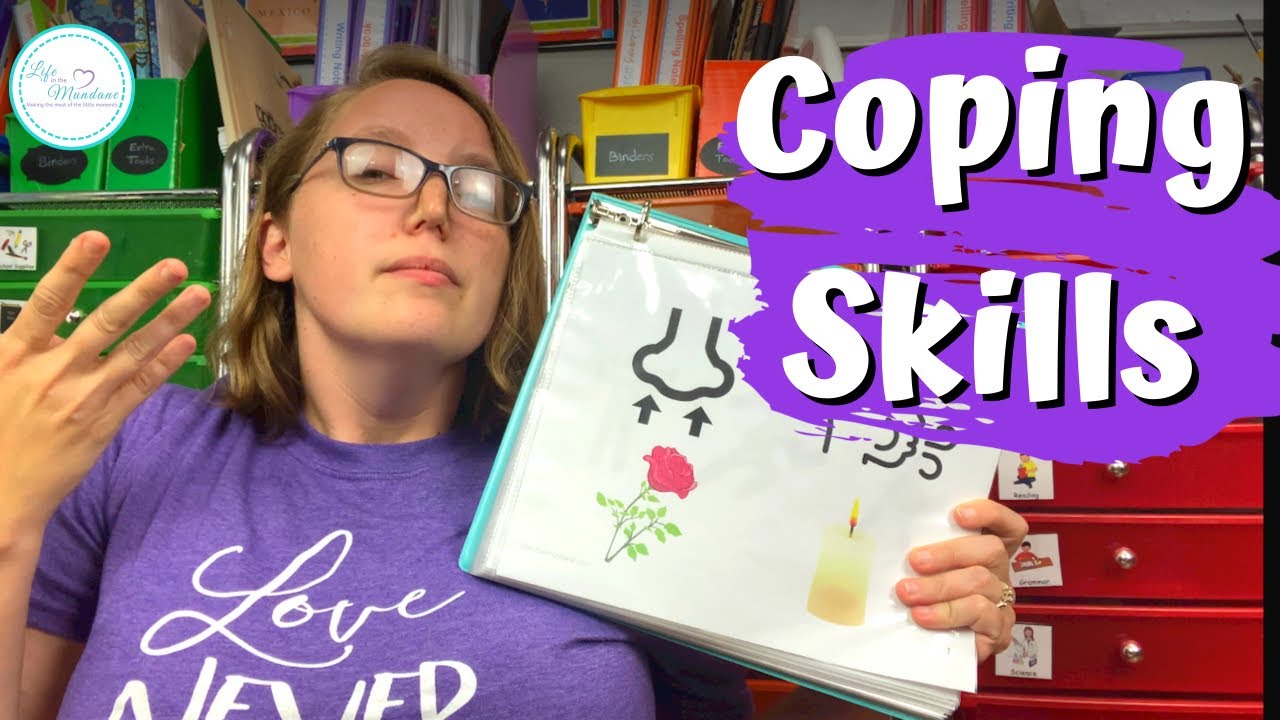
How do you teach someone coping skills?
Teaching coping skills can start with simple techniques like deep breathing exercises and positive self-talk. Encouraging kids to practice these techniques in various situations like school or home helps them manage stress better.
What are the 5 main types of coping skills?
The five main types of coping skills include problem-focused strategies, emotion-focused strategies, meaning making, social support, and religious coping. Each of these plays a role in how someone handles life’s challenges.
What are the 3 C’s of coping?
The 3 C’s of coping are Comfort, Conversation, and Commitment. These strategies can help kids feel understood and supported when they’re stressed or worried.
What are the 4 A’s of coping skills?
The 4 A’s of coping are avoid, alter, adapt, and accept. Thinking about which A to use can help manage stressful situations more effectively.
What therapy teaches coping skills?
Cognitive-behavioral therapy (CBT) often includes teaching coping skills. This therapy helps individuals identify and change negative thought patterns.
What are 5 5 5 coping skills?
The 5-5-5 coping technique involves taking five deep breaths, counting to five while inhaling and exhaling, and then naming five things you can see around you. It’s a quick way to calm down.
What are the 5 C’s of coping?
The 5 C’s of coping are not a well-established concept, unlike the more commonly referenced 3 C’s and 4 A’s. There’s no widely accepted framework for 5 C’s in coping strategies.
What are the 5 R’s of coping?
The 5 R’s of coping are also not a widely recognized framework. When considering well-established coping strategies, focusing on verified methods can be more beneficial.
What is the number one coping skill?
The number one coping skill can vary, but many find deep breathing to be extremely effective and easy to do anywhere.
What is the 3 3 3 coping technique?
The 3-3-3 technique is about grounding yourself by naming three things you see, three things you hear, and moving three parts of your body. This helps center you during a moment of anxiety.
What are the three pillars of coping?
The three pillars of coping often include adaptable thinking, emotional resilience, and social support. These pillars help provide a stable foundation for managing stress.
What are the 4 dimensions of coping?
The 4 dimensions of coping are behavioral, emotional, cognitive, and social. Each dimension encompasses different ways of handling stress.
What is coping checklist?
A coping checklist is a list of techniques or strategies that someone can use to manage stress. It helps ensure a person has a variety of options to choose from when feeling overwhelmed.
What are the big 4 coping strategies?
The big 4 coping strategies include problem-solving, seeking support, relaxation techniques, and cognitive restructuring. Each of these plays a crucial role in effective stress management.
What is an unhealthy coping mechanism?
An unhealthy coping mechanism might be using substances like drugs or alcohol to escape problems. These methods can worsen the situation in the long run.
How do you help someone with coping mechanisms?
Helping someone with coping mechanisms involves providing support, suggesting healthy strategies, and encouraging them to seek professional help if needed.
What is coping skills training?
Coping skills training focuses on teaching individuals specific strategies to handle stressors effectively. It often includes practice scenarios and feedback to build these skills.
What causes poor coping skills?
Poor coping skills can be caused by a lack of exposure to healthy strategies, traumatic experiences, or mental health issues that interfere with learning effective coping methods.
Are coping skills a learned behavior?
Yes, coping skills are a learned behavior. They can be taught and improved upon with practice and guidance from trusted individuals or professionals.



